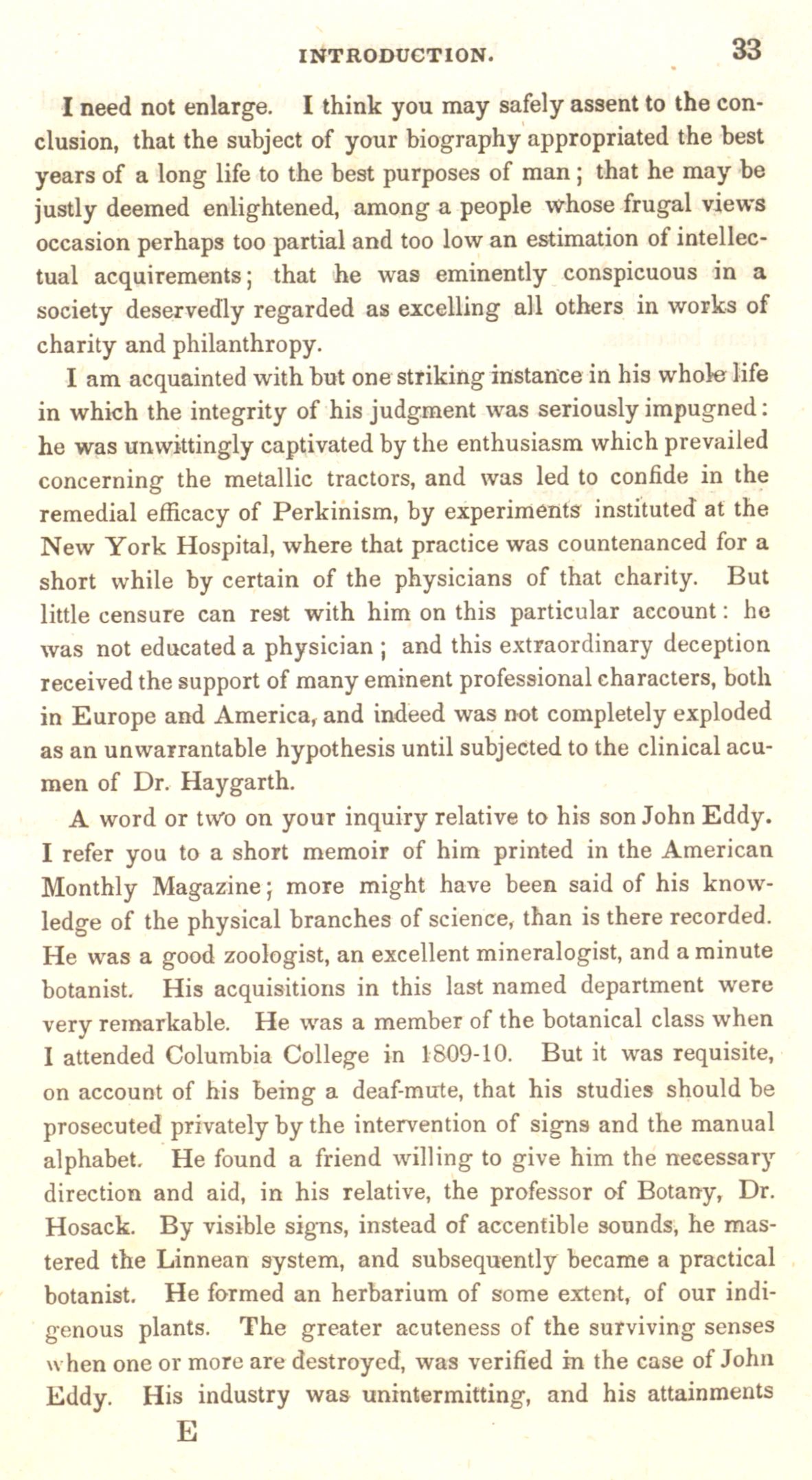I need not enlarge. I think you may safely assent to the
con-
clusion, that the subject of your biography appropriated the
best
years of a long life to the best purposes of man; that he may
be
justly deemed enlightened, among a people whose frugal
views
occasion perhaps too partial and too low an estimation of
intellec-
tual acquirements; that he was eminently conspicuous in
a
society deservedly regarded as excelling all others in works of
charity and philanthropy.
I am acquainted with but one striking instance in his whole life
in
which the integrity of his judgment was seriously impugned:
he was
unwittingly captivated by the enthusiasm which prevailed
concerning
the metallic tractors, and was led to confide in the
remedial
efficacy of Perkinism, by experiments instituted at the
New York Hospital
short while by certain of the physicians of that charity. But
little censure can rest with him on this particular account: he
was not educated a physician ; and this extraordinary deception
received the support of many eminent professional characters, both
in Europe
as an unwarrantable hypothesis until subjected to the clinical acu-
men of Dr. Haygarth
A word or two on your inquiry relative to his son John Eddy
I refer you to a short memoir of him printed in the American
Monthly Magazine; more might have been said of his know-
ledge of the physical branches of science, than is there recorded.
He was a good zoologist, an excellent mineralogist, and a minute
botanist. His acquisitions in this last named department were
very remarkable. He was a member of the botanical class when
I attended Columbia College in 1809-10. But it was requisite,
on account of his being a deaf-mute, that his studies should be
prosecuted privately by the intervention of signs and the manual
alphabet. He found a friend willing to give him the necessary
direction and aid, in his relative, the professor of Botany, Dr.
Hosack
tered the Linnean system, and subsequently became a practical
botanist. He formed an herbarium of some extent, of our indi-
genous plants. The greater acuteness of the surviving senses
when one or more are destroyed, was verified in the case of John
Eddy

